Early Verdict
The Alienware m15 2019 is one of the sharpest-looking and feeling gaming laptops to date, with impressive niceties such as a clever cooling solution and deep key travel in spite of its thin frame. We just wish the entry-level pricing was a little more generous.
Pros
- +
Impressive ‘Legend’ design
- +
Clever, improved cooling solutions
- +
Useful Tobii eye-tracking
- +
Lots of configuration options
Cons
- -
Pricing at entry-level seems stingy
Why you can trust TechRadar
Dell has taken the stage of Computex 2019 to debut its sharp and exciting ‘Legend’ design first seen on the Area-51m to its thin-and-light flagship gaming laptop: the Alienware m15 for 2019. From the clever and evocative rear exhaust vents to the iconographic logo elements, this is a striking device through and through.
It’s also host to a bevy of configuration options that should please the picky buyer, though we’d like to see a little more included in the laptop’s starting price compared to key rivals.
At any rate, you’re looking at the bright and substantive future of Dell’s gaming brand, now heralded by some impressive-looking and feeling gaming laptops. Here’s what we think after some brief time with the laptop during a New York City press event held prior to Computex in Taiwan.
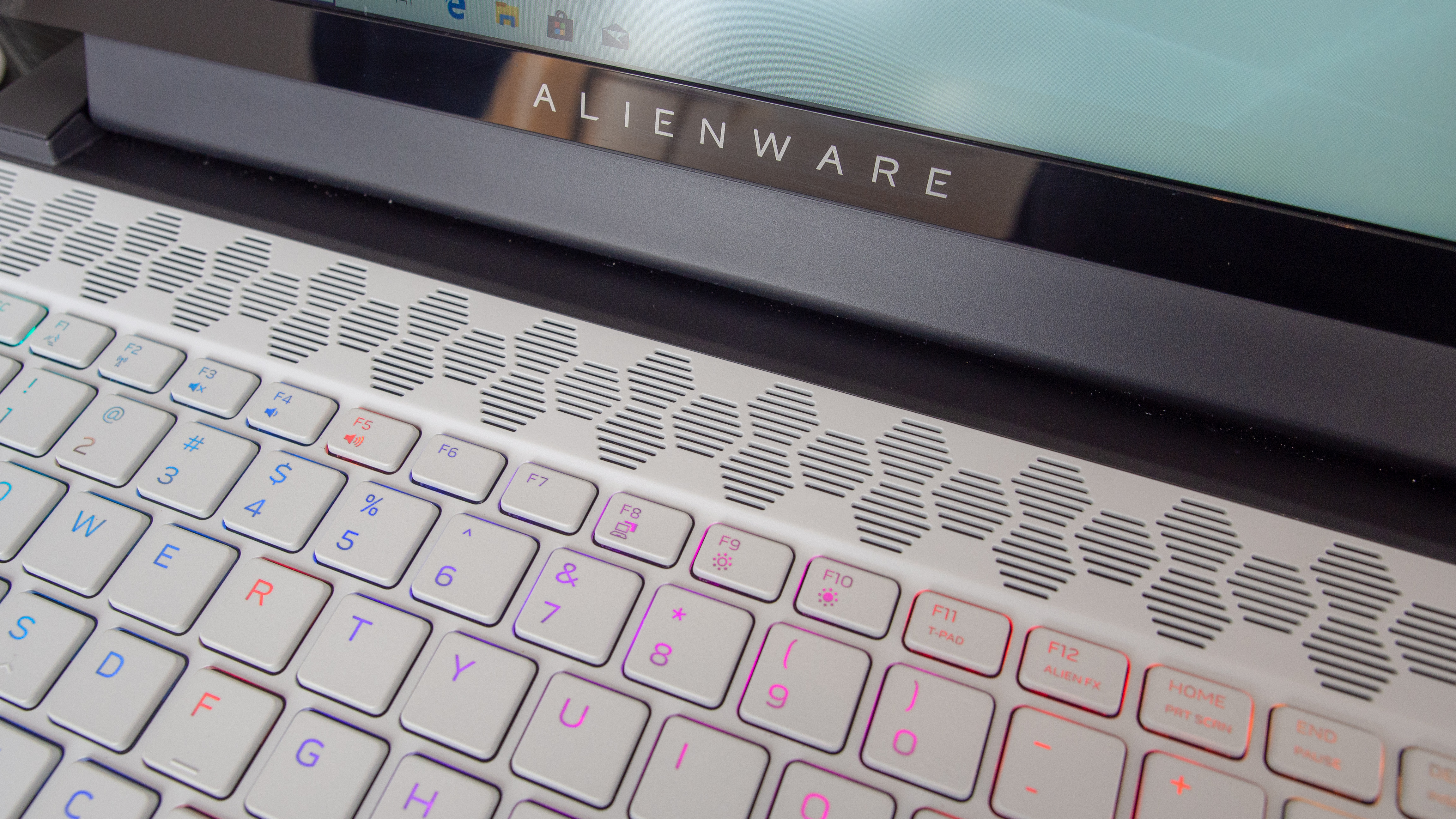
Price and availability
Dell wants a rather surprising price for its new thin-and-light gaming laptop: $1,499 (about £1,200, AU$2,170) when it lands on June 11. That price doesn’t seem surprising on its face, but consider the hardware on offer at that level.
For that price, you’re getting either a 15.6-inch or 17.3-inch, Full HD (1,920 x 1,080) display at a 60Hz refresh rate powered by a 9th-generation, quad-core Intel Core i5 processor (CPU) and Nvidia GeForce GTX 1650 (4GB GDDR5) graphics chip (GPU). That’s paired with 8GB of memory (RAM) at 2,666MHz and a 256GB PCIe M.2 solid-state drive (SSD).
That seems like quite a lot of cash to start for a laptop with a completely standard display and graphics power not far beyond that of last year’s GTX 1050 chip. Last year, you could get a 15-inch laptop with a 60Hz display and GTX 1050 graphics for below $1,000. Granted, it wouldn’t come with the bells and whistles we’ll get into shortly, but penny-for-pixel performance (if you will) matters quite a bit in gaming laptops – more so than in general use machines.
At any rate, while Dell isn’t talking expanded pricing options just yet, you can top out the Alienware m15 with either a 240Hz FHD display paired with Tobii eye-tracking technology built into the webcam array or an OLED Ultra HD (3,840 x 2,160) with Tobii tech as well as HDR 400 color reproduction. Dell doesn’t even offer OLED 4K or FHD 240Hz displays on the 17-inch model.
As for inside, you can max out either size laptop with up to an Intel Core i9-9980HK CPU and 16GB of RAM. For storage, single-drive options top out at 2TB SSDs while multi-drive configurations stop at two 2TB SSDs in RAID0 orientation. Naturally, graphics cap out at an Nvidia GeForce RTX 2080 Max-Q with 8GB of GDDR6 video memory.
Who knows how much such a laptop will cost you – far upwards of $3,000, that’s more than likely.
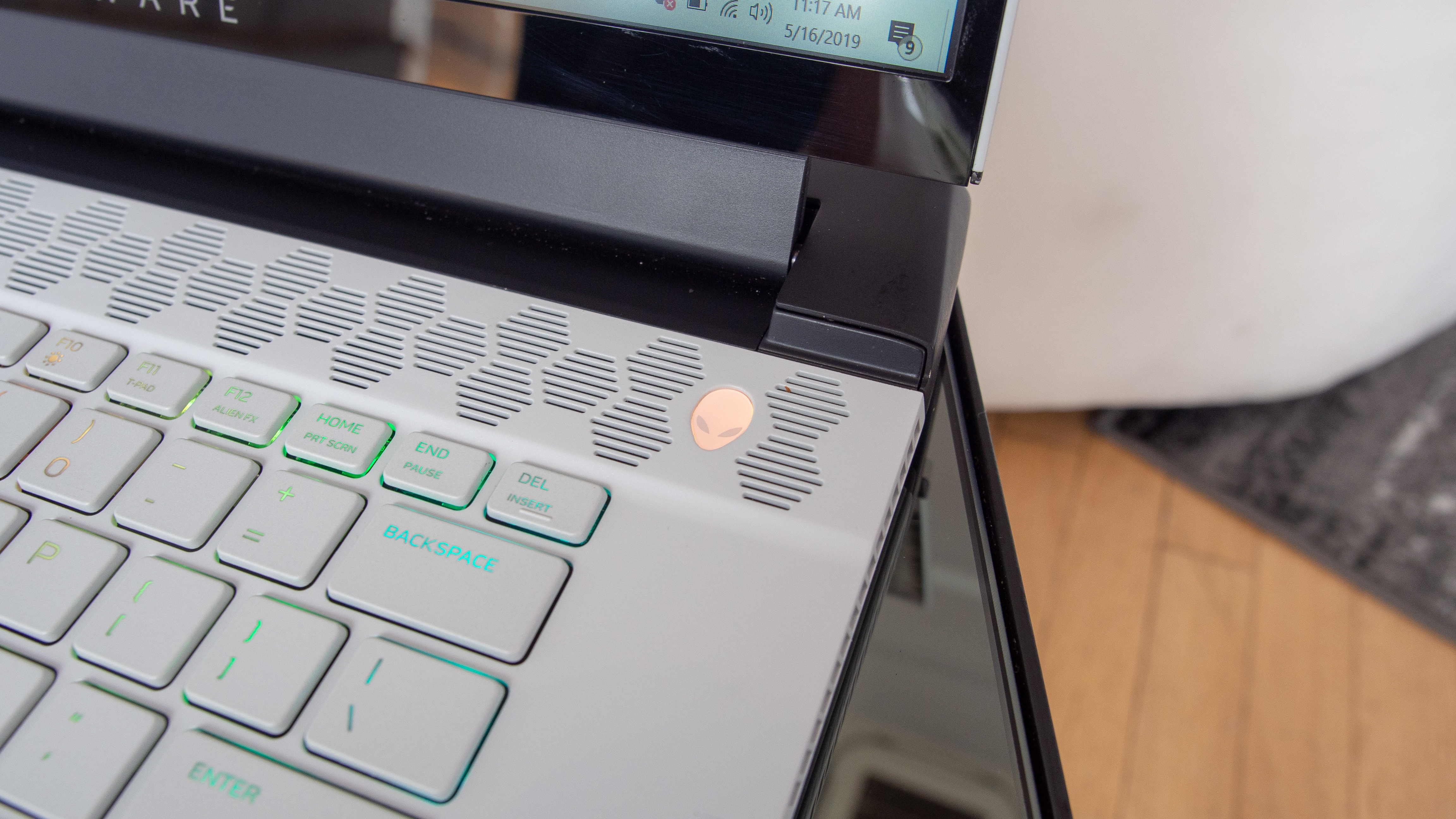
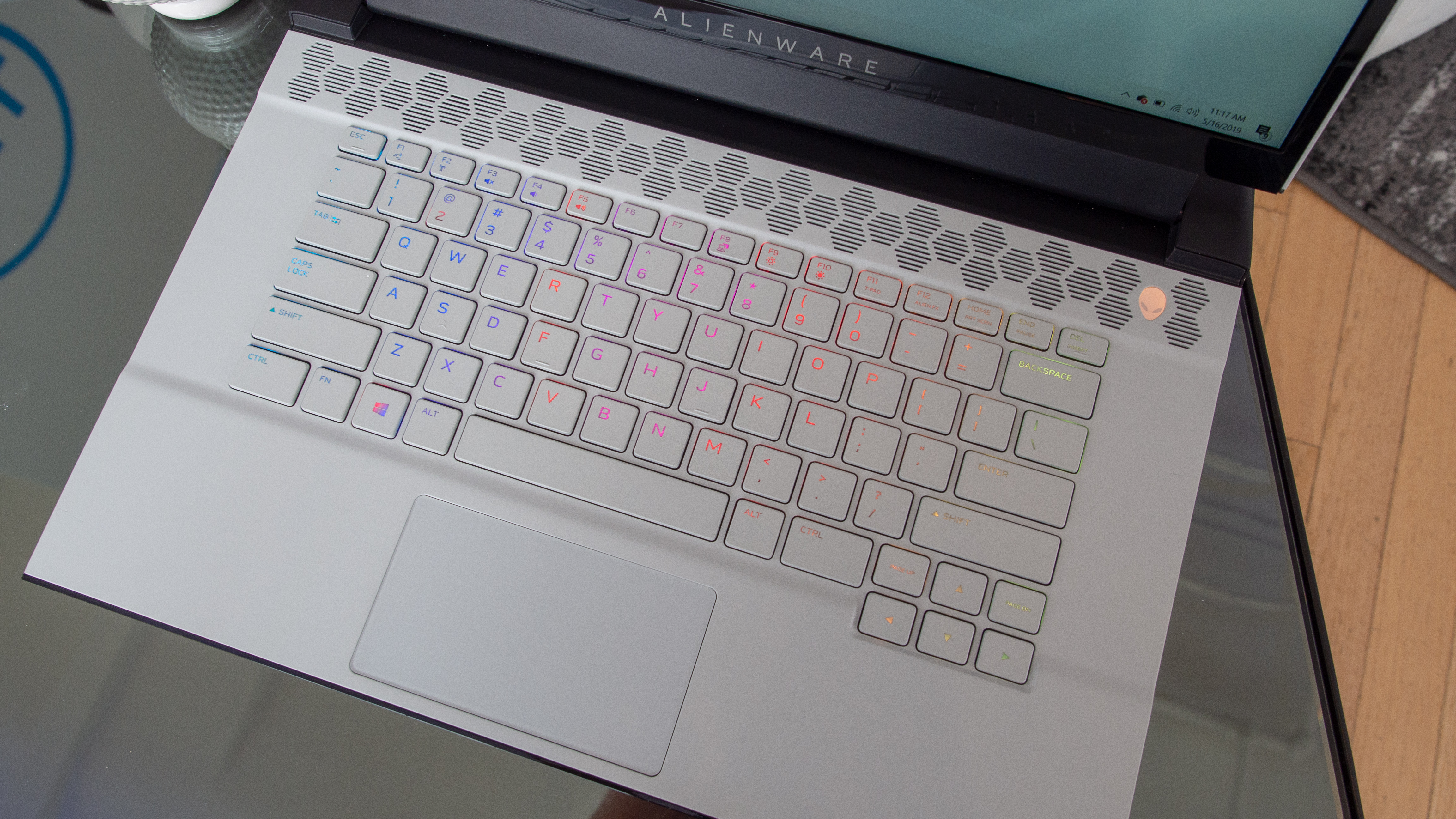


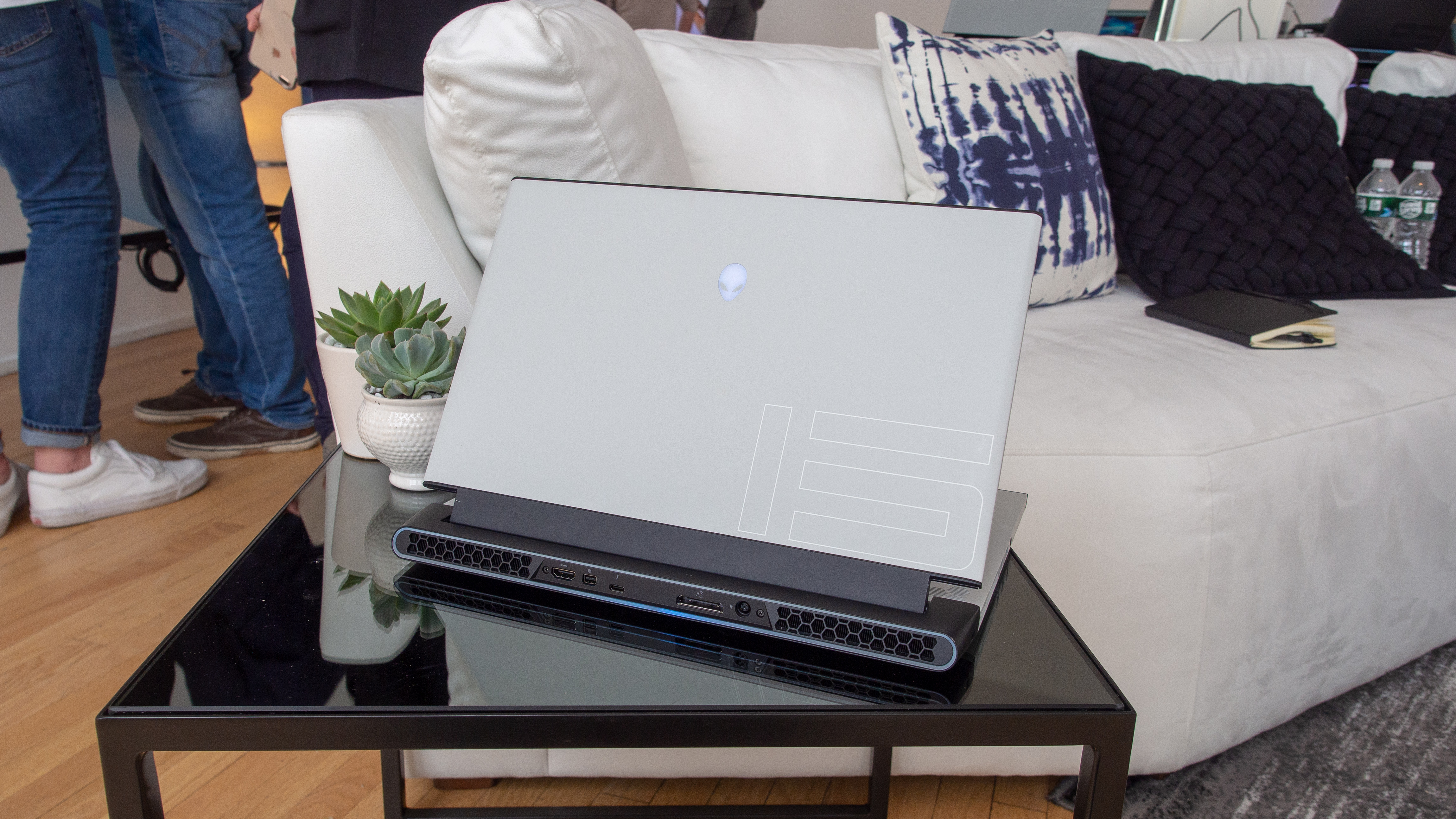
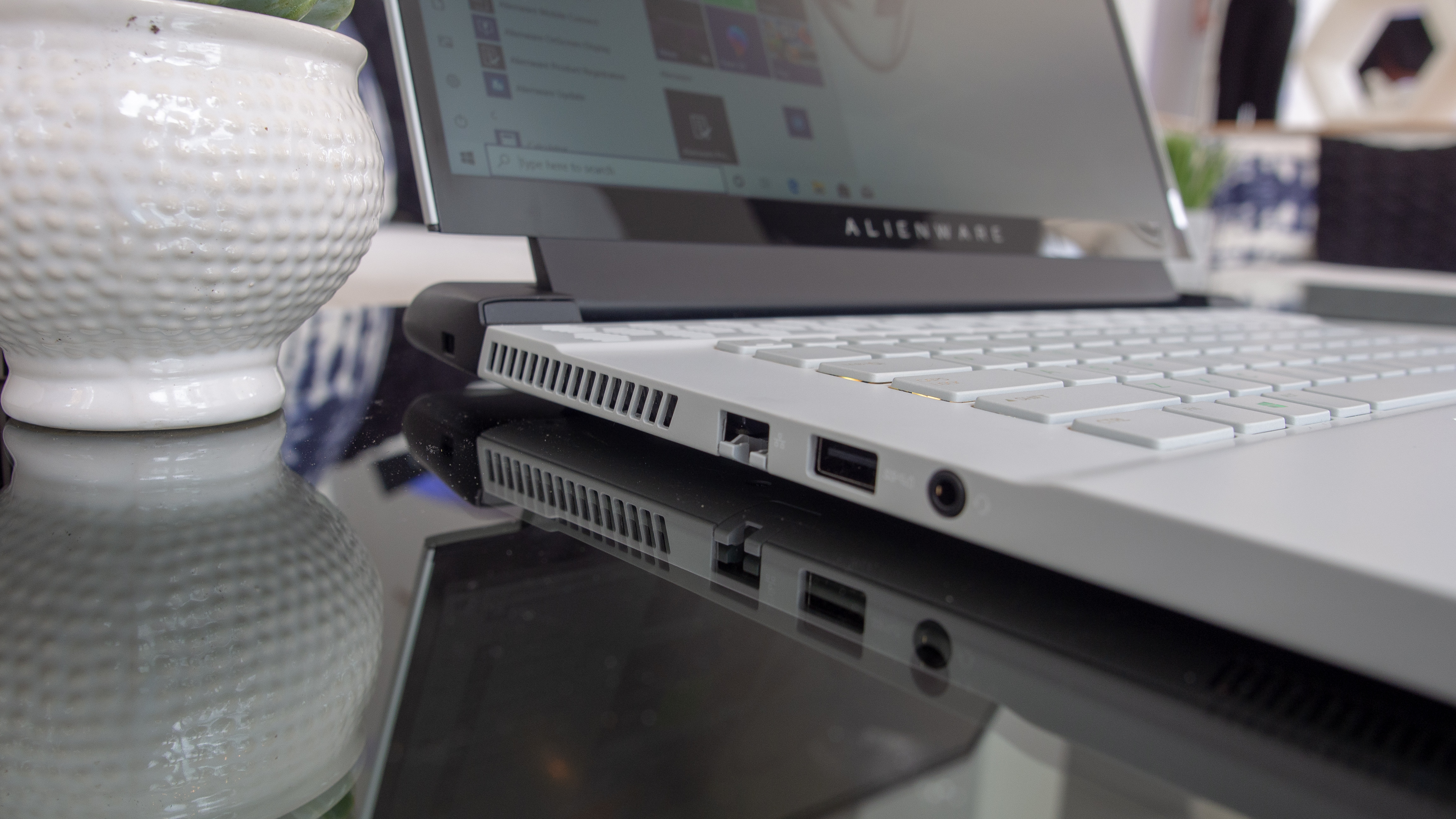
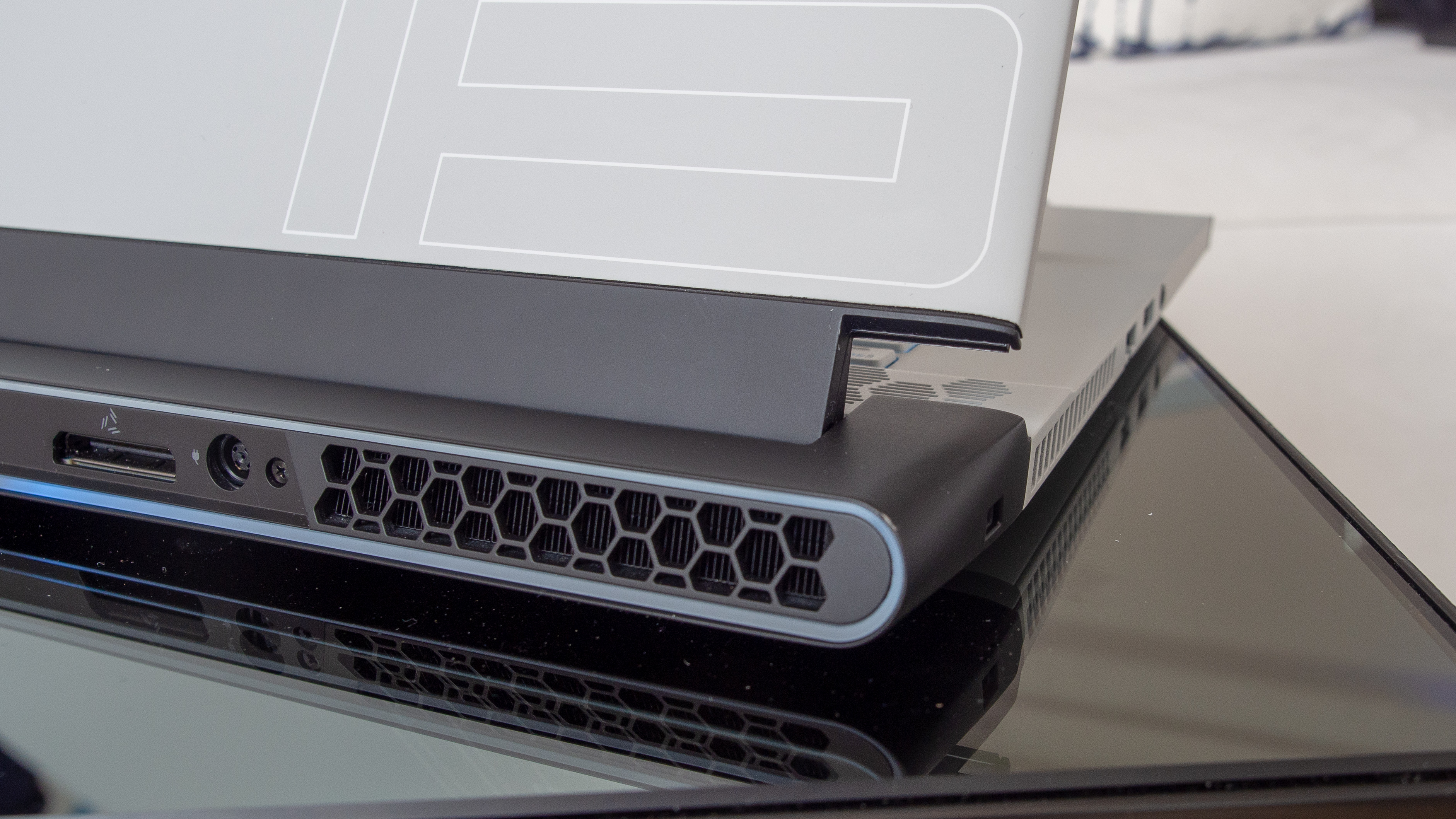
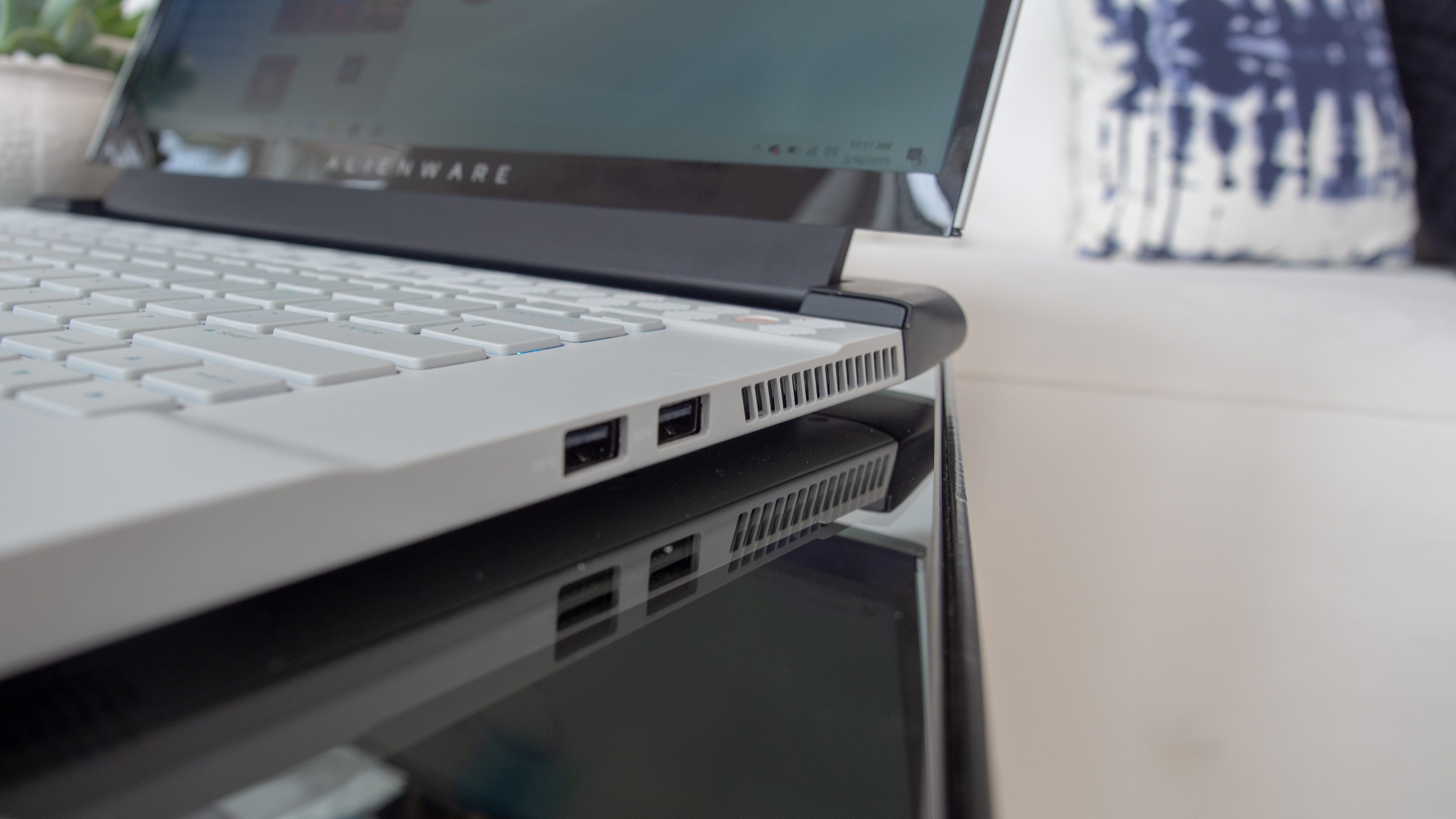
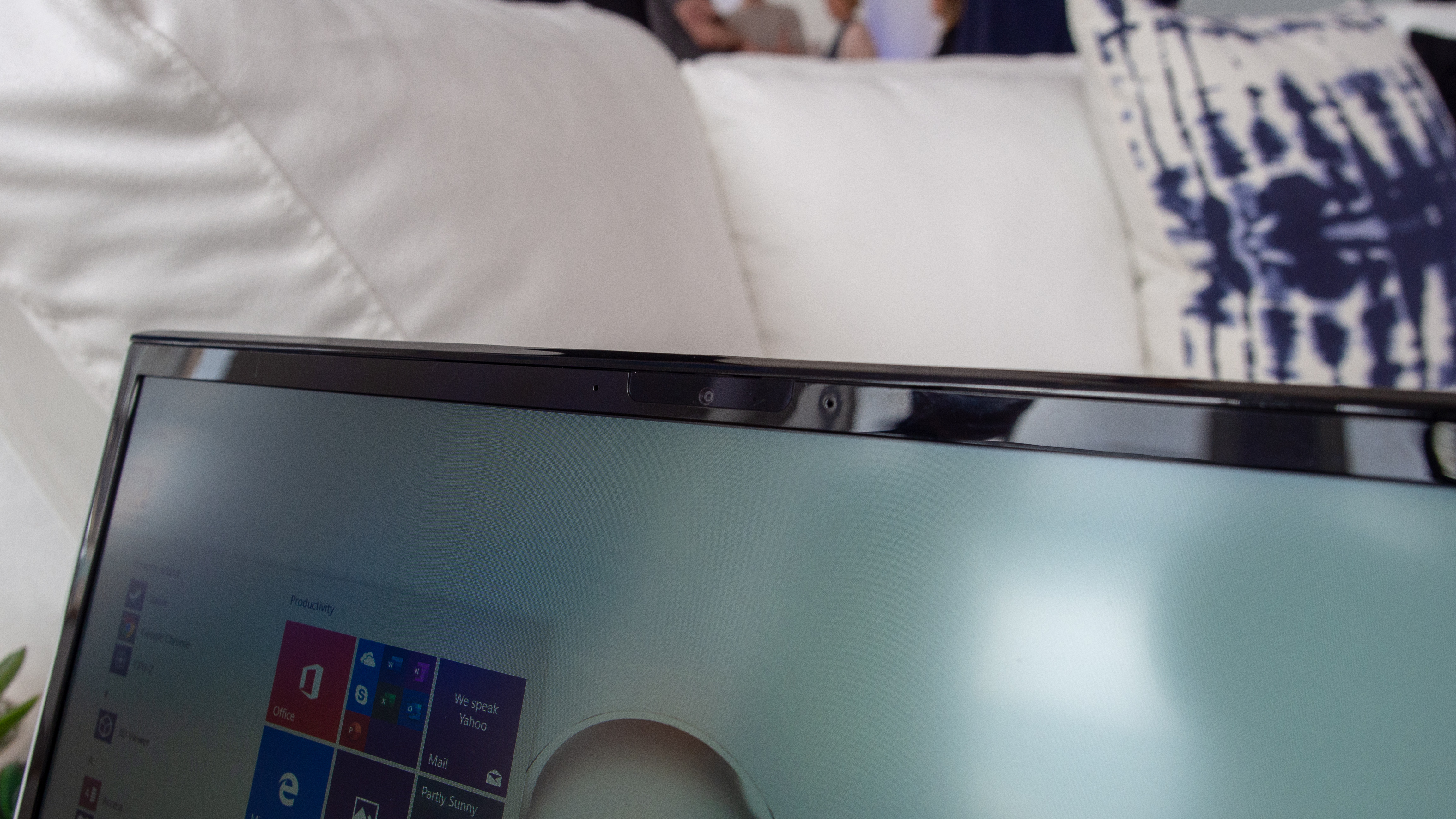
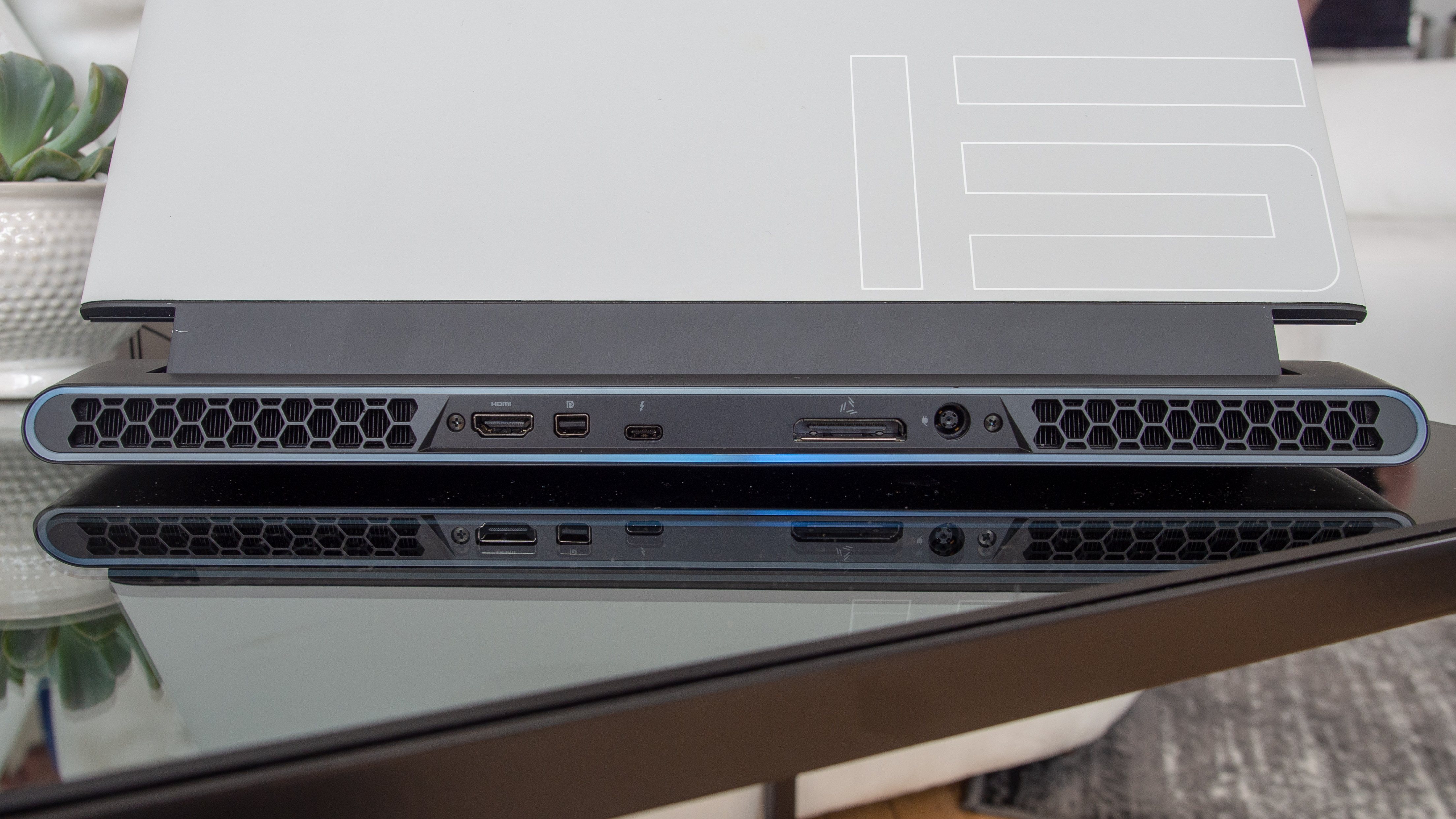
Design and display
Dell has clearly taken its brilliant mothership-like ‘Legend’ design identity and adapted it to its thin-and-light gaming laptop chassis to incredible effect. This is one of the raddest-looking gaming laptops we’ve ever seen, and we’re elated to see the design within a chassis that’s actually remotely portable.
Available in Dell’s “Dark Side of the Moon” and “Lunar Light” color options, the soft-touch paint feels somehow more premium than some aluminum clad gaming laptops and miles away from the standard plastic frames we so often see. The logo work on the lid makes the laptop seem as if it's one of a fleet ready for take-off into the next orbital conflict.
We appreciate the display from a technical perspective, but were not able to test its 240Hz or 4K OLED capabilities during our brief testing. For the competitive set, we’re sure that 240Hz refresh rate is bound to impress, likewise for the more immersion-driven gamers and that 4K OLED panel. However, you’re likely to need the most powerful GPU on offer to drive the latter effectively, which will get pricey quick.
On a related note, while we weren’t able to test the laptop’s Tobii eye tracking tech during our time with it, we’re told that this plays directly into Dell’s Alienware Academy program. With it, in-house tutors can use players’ eye tracking data to train them to become more effective in focusing on the right elements of a game at the right moments when in the action. That alone might be worth the scratch for the right type of aspiring professional gamer.

The honeycomb grill you see just beneath the display is actually not covering the laptop’s speakers, but rather intake for the Cyro-Tech 3.0 cooling system inside that’s now equipped with 10 more fans overall for a 10% increase in airflow and a 20% in airflow impedance. Hot air shoots out of the new rear exhaust ports – both a practical and thematic design.
We are rather impressed by just how much travel Dell has achieved in the Alienware m15’s keyboard, now at 1.7mm in a chassis that’s just 0.77-inches (19.5mm) thick – Dell’s thinnest gaming laptop yet. The keyboard takes on the Legend design’s per-key RGB lighting using Dell’s AlienFX software and firmware, and we find it to be quite forceful and accurate in typing.
However, while Dell chalks it up to larger keycaps than before, we are a little put off by the lack of a number pad on the keyboard in the 15-inch model. This is a strange explanation for it, too, considering the unused space on either side of the keyboard that should otherwise feature top-firing speakers – instead, those bounce sound off of whatever surface the laptop is resting on. If that happens to be your laptop, expect muffled audio without headphones.
That said, we quite enjoy the glass-coated Microsoft Precision trackpad that’s center aligned. As for ports, this laptop has it all for a thin-and-light device: one Thunderbolt 3 (USB-C) port, two USB 3.1 ports, one USB 3.1 port with PowerShare, one HDMI 2.0b port, one mini DisplayPort 1.4, one RJ-45 Ethernet port and an Alienware Graphics Amplifier port.
The new thin-and-light design for Alienware laptops is all told an incredible adaptation of what we assumed was to be exclusive to its largest model – which we now know will eventually spread to all products under the Alienware brand.

Performance
It’s tough to glean too much regarding a laptop’s performance from a few brief minutes with the thing. However, we do know exactly what this device will house inside. At the entry level, we’re not terribly optimistic for what experience it will provide at the price listed.
Also, it’s interesting that Dell hasn’t opened up the RAM expansion options to 32GB as it has on products like the 2019 XPS 15 and XPS 13 2-in-1, of all things. Surely, gamers that like to broadcast gaming from their laptops to Twitch would appreciate the extra memory to handle such an endeavor?
At the highest end, there’s little doubt that this laptop will deliver on expectations and then some, but at what cost? If such entry-level performance will end up costing so much, we’re not left confident that more impressive performance will be accessible to most folks.
As for battery life, Dell isn’t even providing a figure yet.

Early verdict
We’re left well impressed by the new design applied to Dell’s thin-and-light flagship gaming laptop. This is one of the sharpest-looking and feeling gaming laptops to date, with impressive niceties such as a clever cooling solution and deep key travel in spite of its thin frame.
However, we’re left a little wanting from the pricing. While we fully expect pricing at around $2,000 for RTX graphics, $1,499 to start for GTX 1650 graphics seems a little steep considering what else is on offer for the price: just 8GB of RAM and a Core i5 processor with 256GB of storage. A Razer Blade 15 with GTX 1060 graphics, 16GB of RAM and gobs more storage – not to mention a 6-core Intel Core i7 CPU with a 144Hz display and top-firing speakers – seems like a smarter way to spend the same amount of cash.
At any rate, we’re excited to see Dell’s impressive new Alienware design translated to its thinner and lighter form factor. This is a clever application of cooling technology that will allow the laptop to operate at max capacity for longer than many competitors. We just wish you’d get a little more for that already-steep entry-level price.
Check out all of TechRadar's Computex 2019 coverage. We're live in Taipei to bring you all the breaking computing news and launches, plus hands-on reviews of everything from fresh laptops and desktops to powerful new components and wild overclocking demonstrations.
Joe Osborne is the Senior Technology Editor at Insider Inc. His role is to leads the technology coverage team for the Business Insider Shopping team, facilitating expert reviews, comprehensive buying guides, snap deals news and more. Previously, Joe was TechRadar's US computing editor, leading reviews of everything from gaming PCs to internal components and accessories. In his spare time, Joe is a renowned Dungeons and Dragons dungeon master – and arguably the nicest man in tech.
What is a hands on review?
Hands on reviews' are a journalist's first impressions of a piece of kit based on spending some time with it. It may be just a few moments, or a few hours. The important thing is we have been able to play with it ourselves and can give you some sense of what it's like to use, even if it's only an embryonic view. For more information, see TechRadar's Reviews Guarantee.
